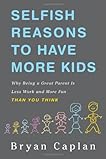The Problem of Evil is, I think, one of the most intriguing issues in the Philosophy of Religion.
One reason is that the problem of evil is something that actually seems to move people in terms of religious belief. I'd be surprised to learn of anyone who was convinced of the existence of God because of the argument from first cause or the argument from design. These arguments, generally, are convincing only to those who already accept the existence of a deity. And I'd be even more surprised to discover a theist who gave up his belief because the arguments for the existence of God were riddled with logical fallacies.
Yet, if you looked around and talked with someone who has either turned to faith or rejected faith, I'd bet you'd find that the Problem of Evil was a contributing factor. The existence of evil in the world appears to be something that actually influences people's belief (or non-belief) about God.
After the Holocaust many Jews, as well as other followers of other religions, gave up on faith. How could God exist and allow such evil? What kind of belief in God could make sense of the senseless murder of 6 million?
Many people reacted similarly to 9/11. How could God allow people to kill so many innocent people...and in his name no less?
And yet for others, their faith is made stronger by these events. They see God's presence in the righteous actions of those who risked their lives to save Jews or in one's own miraculous survival in the Holocaust. And many turned to faith for answers after 9/11.
Many scholars posit, as well, that the existence of evil was the impetus for the birth of religion in the first place. As ancient Man began to think of his place in the universe and reflected on his experience of great pain and suffering, he invented (or turned to, I guess, depending on one's belief). One can see this through out the Bible: God and his prophets reassuring the people that there was a reason for the pain and suffering in the world.
Another reason that the Problem of Evil fascinates is because it raises so many important philosophical questions: free will, moral responsibility, the nature of faith, the role of reason in religious belief, and basic metaphysical questions: is the universe one where God, devils, angels, miracles can exist or is it one where the supernatural is essentially nonsensical.
So, just what is The Problem of Evil?
The standard conception of God in the Western monotheistic religions (Judaism, Christianity, and Islam) is that God is Omniscient (all-knowing), Omnipotent (all-powerful), and Omni-benevolent (all-good/loving).
God is all good, so he wants to prevent suffering and injustice. He'll have the right motives.
God is all powerful, so he has the means to stop suffering and injustice.
God is all knowing, so he knows when and where suffering is occurring, so he has the opportunity.
In other words, God has the motive, means, and opportunity to prevent suffering and injustice.
And yet, suffering and injustice (evil) persist.
We have four claims:
- God is all-good
- God is all-powerful
- God is all-knowing
- Evil Exists
These four claims together appear to be incompatible, but (most) theists do not want to deny these four claims. So, in attempts to resolve this paradox, theists often engage in Theodicy. From the Greek for God's Justice, Theodicy is an attempt to show that all four claims are compatible.
There are, as you can imagine, many theodicies. Over the years, I've collected the various ones I've come across, either from research or from students. In a subsequent series of posts, I will explain and analyze some of the more interesting theodicies.
A couple of ground rules and warnings for this series:
- I'm primarily interested in theodicy that maintains all four claims. One might argue, as Rabbi Kushner does in his deservedly famous When Bad Things Happen to Good People, that God is not all-powerful. Such an account makes room for the existence of evil, but it also changes the standard Omni-conception of God that most theists appear to hold.
- I am interested in hearing from others about their thoughts on these Theodicies. Since I'll be dedicating one post to a Theodicy (or a set of closely related ones), keep your comments to a post focused on the theodicy being discussed.
- I will delete any comments that do not actually contribute to the discussion: so don't bother calling me a blasphemer, engaging in witnessing or preaching, or posting a bunch of Biblical quotes about how "He's the one" or some such thing. Remember this is my website, not a community bulletin board.
- In the end, none of the theodicies work. Nonetheless, unlike many non-theists, I do not think this demonstrates the non-existence of God. It does, however, point to the basic irrationality of religious belief. I will elaborate this point in a later post that will conclude this series.




























